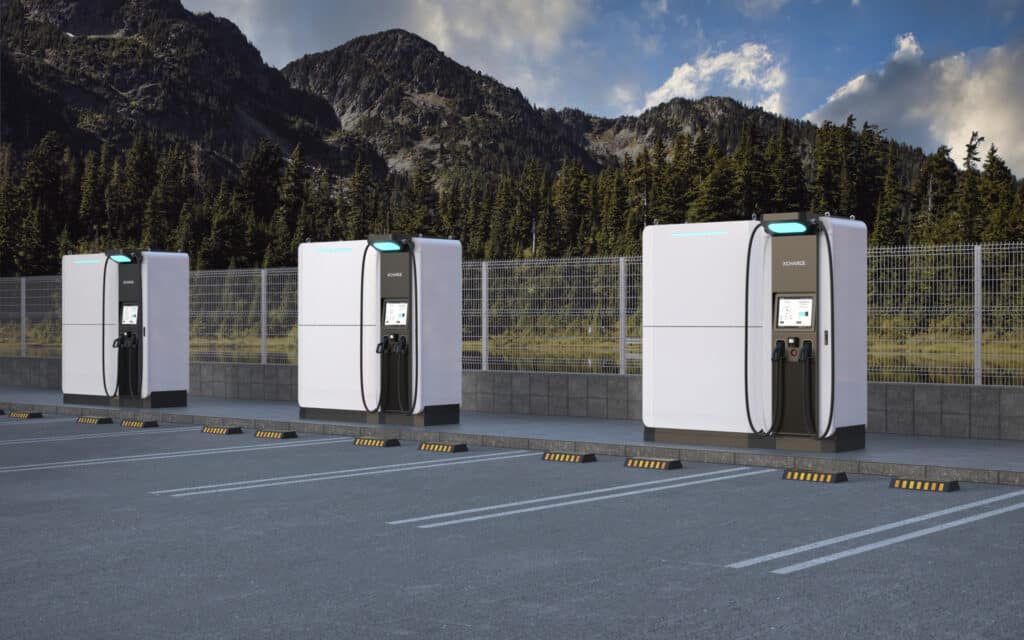Alex Urist, VP Business Development for XCharge North America, Interviewed by EVinfo.net
Alex Urist, XCharge North America VP Business Development, was interviewed by Bill Pierce, Publisher, EVinfo.net. In this interview, Urist shares information about XCharge North America, as well as his own thoughts on EV adoption.
BP: Please tell us a little about yourself.
AU: I’m Alex Urist. I lead up business development for XCharge North America, a high-power intelligent charging solutions provider, developing UL-certified EV charging products specifically designed for the North American electrical grid. XCharge North America is focused on enabling superior EV charging by applying “hardware + software” systems to allow for a streamlined experience for EV charging. XCharge North America emerged to support US customers in maximizing charge revenue while reducing maintenance and installation costs.

BP: Who founded your company? When did that happen?
AU: Aatish Patel founded XCharge North America in 2022. I have been involved since its founding as well.
BP: Please list the current leadership and describe their roles.
AU:
- President Aatish Patel
- VP Business Development, Alex Urist
BP: What is your company’s mission?
AU: XCharge North America is focused on enabling superior EV charging by applying “hardware + software” systems to allow for a streamlined experience for EV charging.
BP: What services/products do you provide?
AU: We manufacture DCFC, and smart grid solutions designed for the North American grid. The C6AM, a DCFC which can be configured on 208Vac or 480Vac 3P input resulting in greater flexibility for deployment applications.
Our Net Zero Series product is a first of its kind bidirectional battery integrated DC Fast Charger equipped with a 233kWh energy storage device and DCFC capable of up to 194kW output. See the article about its installation in Allen, TX in April 2023.
BP: I congratulate you for your Net Zero Series product, as a first of its kind bidirectional battery integrated DC Fast Charger. I believe Vehicle-to-Grid (V2G) technology is an important part of the future of the EV industry, and that one day, every vehicle and every charger will be bidirectional. V2G has many benefits which we’ve reported on here at EVinfo.net. Some include preventing blackouts by overloading the grid, incentivizing smart charging for EV owners, and providing emergency power during an outage.

BP: How has your company supported sustainability?
AU: Our Net Zero Series charger helps to reduce carbon emissions by providing multipurpose distributed energy systems paired with chargers to enable electrified transportation.
BP: How and when did you get into EVs? Which EVs have you owned? What have been your most favorite and least favorite features of them?
AU: I started in EVs about 2 and a half years ago helping to co-found a company with our President Aatish Patel leading into the work we do today. I haven’t owned an EV but rent plenty – Tesla clearly has the most reliable network, and when I’m renting, I often want to have the peace of mind. I’m hoping to make a difference and impact the reliability of CCS1 chargers with our work through XCharge North America.
BP: How has your org promoted EV adoption in the past?
AU: We are a supporter and collaborator of various Clean Cities Coalition projects across the US. Given we are a manufacturer of EVSE we are quite literally supporting EV adoption every day.
BP: What plans does your org have for promoting EV adoption in the future?
AU: Putting down more charging infrastructure is the key to driving more adoption into the future – giving drivers confidence they can get where they need to go.
BP: What are the biggest barriers to EV adoption in your opinion? How could these barriers be overcome?
AU: Reliability and availability of charging infrastructure, which can be overcome with better attention to service and more vested interest from the network operators in understanding the hardware behind their charging network and how their software interacts. We need less focus on high output, and more focus on putting in infrastructure where it makes sense.
BP: What do you believe government could do to promote EV adoption that they are not currently doing?
AU: I think they are doing a good job in promoting EV adoption frankly, the impediment is in making the economics make sense for those manufacturing vehicles and charging infrastructure. They are doing this with incentives for manufacturing stateside, but in the short term it is going to be expensive to make the transition to going electric. There are immense switching costs involved which are being lowered, but will still take time.
BP: How could middle class and lower income families be assisted in adopting EVs?
AU: Further tax credits/rebates based on economic level as opposed to blanket tax credits, as well as subsidized charging for individuals in low-income areas.
Thank you Alex for taking the time to speak with us. We greatly appreciate your efforts in EV adoption and your time.

Electric Vehicle Marketing Consultant, Writer and Editor. Publisher EVinfo.net.
Portfolio: BillPierce.net
